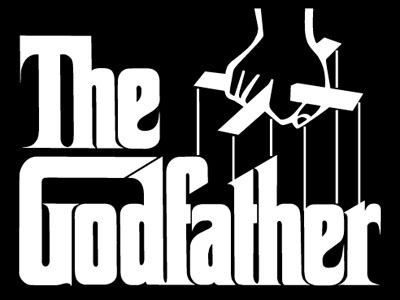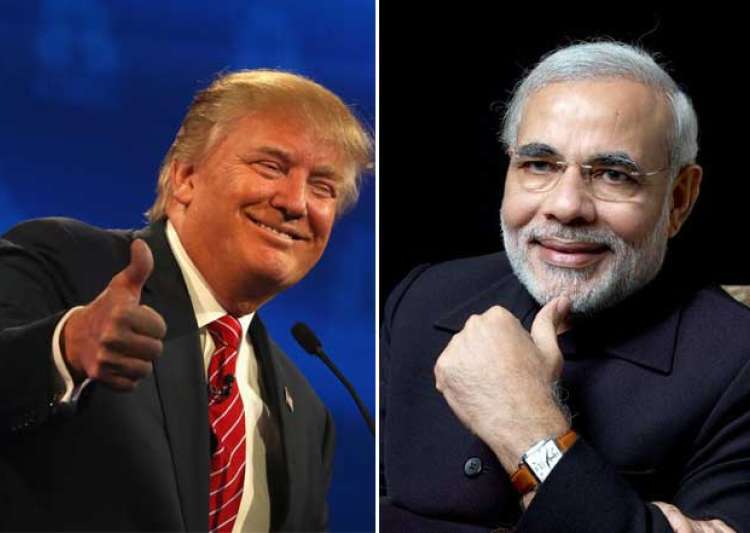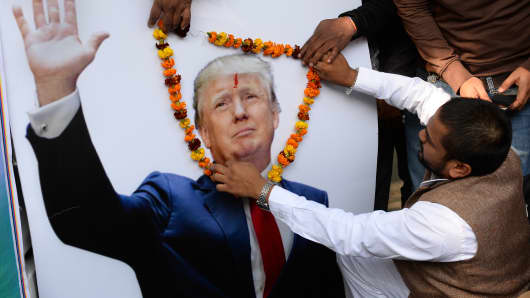By Norman Eisen and Noah Bookbinder

The Godfather's family: Ivanka Trump and Jared Kushner.
Coming on top of months of revelations of China-related conflicts involving Trump and his relatives, reports that Jared Kushner’s family used his position to solicit Chinese investors were a tipping point.
The president’s son-in-law and daughter Ivanka Trump should now broadly recuse themselves from working on China-related issues.
According to media reports, Kushner’s sister pitched a roomful of Chinese investors to participate in the EB-5 visa program and qualify for a path to U.S. citizenship by investing at least $500,000 in a New Jersey real estate project, Kushner 1.
According to media reports, Kushner’s sister pitched a roomful of Chinese investors to participate in the EB-5 visa program and qualify for a path to U.S. citizenship by investing at least $500,000 in a New Jersey real estate project, Kushner 1.
The proposal included dropping Jared Kushner’s name, alluding to his administration role and noting that the president will be a key decision-maker about the future of the controversial visa program.
The implications were unmistakable; one Chinese investor who attended told a reporter that the Kushners’ proximity to the president was a key part of the project’s appeal.
This sales pitch is clearly unacceptable.
This sales pitch is clearly unacceptable.
The family business should not benefit from Jared Kushner’s name and position as assistant to the president.
Moreover, while it’s not clear whether Kushner had any knowledge of or involvement in this conduct, he retains a financial interest in many family businesses.
Thus, he stands to benefit when the company trades on his name.
Kushner’s lawyers assert that he sold his interests in this particular project to a trust of which he is not a beneficiary — although we know of no reason he couldn’t be reinstated as a beneficiary in the future.
Kushner and his wife have in the past said they will comply with all ethics rules.
Kushner and his wife have in the past said they will comply with all ethics rules.
If so, as a starting point, Kushner must immediately take steps to ensure that businesses with which he is or has been associated refrain from using his position to promote investments.
In fact, no Trump or Kushner companies should utilize the EB-5 program; the possibility for the appearance of improper influence, and perhaps worse, is too great.
Kushner also initially indicated that he would recuse himself from “particular matters” involving the EB-5 program, but under pressure this weekend appeared to be stepping back more broadly from participating in any issues related to that program — a welcome development.
But given the complex ties at issue here, and the events of the past several months, that is not enough. Other ties and negotiations between Kushner companies and China have emerged in recent months, and under federal ethics rules, these interests must be considered together with those of Ivanka Trump, also a senior presidential adviser.
But given the complex ties at issue here, and the events of the past several months, that is not enough. Other ties and negotiations between Kushner companies and China have emerged in recent months, and under federal ethics rules, these interests must be considered together with those of Ivanka Trump, also a senior presidential adviser.
Trump’s companies, in which she retains ownership interests, do business in China, and she was recently granted provisional approval for valuable trademarks by China just as she was engaged in high-level contacts with Chinese leaders.
These involvements raise profound questions about whether the couple should more broadly recuse themselves within the area of China policy.
These involvements raise profound questions about whether the couple should more broadly recuse themselves within the area of China policy.
There can be little doubt now that both Kushner and Trump face at least the appearance of a conflict — indeed, of multiple conflicts — when it comes to China policy, particularly on issues of trade, investment and immigration.
As one of the president’s most trusted advisers, Kushner has a much broader and more fluid portfolio than most other administration officials.
As one of the president’s most trusted advisers, Kushner has a much broader and more fluid portfolio than most other administration officials.
Kushner’s situation is vastly different than that of former Obama administration secretary of commerce Penny Pritzker, who was permitted to retain her interests in a publicly traded hotel company that has properties in China.
Compared with Pritzker’s situation, involving a company that was required to file public documents with the Securities and Exchange Commission, there is much less transparency into Kushner or his family’s privately held business investors and lenders, or the degree to which these businesses are leveraged, at the same time that his influence within the administration appears unparalleled.
This is far more than a technical issue about the scope of ethics rules.
This is far more than a technical issue about the scope of ethics rules.
We now face core questions about whether administration decisions relating to an important — perhaps the most important — foreign power are being made based on the interests of the country and the American people, or based on the business interests of senior officials.
Of course, we already had that concern with Trump himself, who has refused to divest from ownership of his global web of business interests.
Of course, we already had that concern with Trump himself, who has refused to divest from ownership of his global web of business interests.
With regard to China specifically, Trump has also received valuable trademarks from the Chinese government, including one that China had denied for a decade but granted after Trump switched course and reaffirmed the one-China policy.
In addition, a bank owned by the government of China is a major tenant in Trump Tower in New York.
Can Kushner and Trump be trusted to protect American jobs from flowing to China or to pressure China if necessary in containing North Korea, or act appropriately on any of the other difficult issues that will arise with respect to China when these vast conflicts of interest persist?
It is well past time for this administration to begin drawing real and meaningful lines to avoid catastrophic conflicts of interest.
Can Kushner and Trump be trusted to protect American jobs from flowing to China or to pressure China if necessary in containing North Korea, or act appropriately on any of the other difficult issues that will arise with respect to China when these vast conflicts of interest persist?
It is well past time for this administration to begin drawing real and meaningful lines to avoid catastrophic conflicts of interest.
The latest reports make it is even more important that Kushner and Ivanka Trump step forward and do the right thing.
A broad recusal on China policy would be a good — and essential — start.


